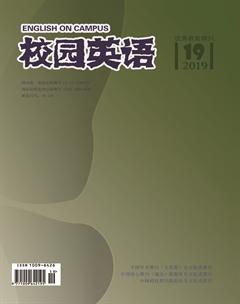A Study on English listening strategies of students in vocational school
【Abstract】As we know, listening is an important means of acquiring the information. In the course of language learning, listening is the main approach of getting knowledge, but also the critical link of improving ability of communication. In one word, English listening is one of the most important points in English teaching. With the purpose of increasing the understanding of listening comprehension and improving the teaching of listening, Listening strategies are embodied and utilized in listening comprehension, the main ones are below.
【Key words】teaching strategy; English teaching
【作者簡介】定理,湖北省广播电视学校。
1. Self control
Its hard for listener to keep concentration with the material all the time, thats so-called attention termination. We could try like this: do some explanations and practices on the difference between American pronunciation and English one, or offer part of new words, clue questions, and key words before playing the tape, supervise and encourage students not to give up when they meet with new words, put up with difficulty and keep going so as to form self-control ability.4.2 Segmentation.
2. Segmentation
Theres experiment result to show that theres no obvious difference between response time to signals in different length. The speed of perception to a series of meanings cant be slower than the one to one phoneme. A good learner can identify with a long meaning according to intonation and pause because every speech will pause on the basis of meaning. If listeners segmentation confirms with the speakers pause, it will shorten the response time to sign dramatically and benefit for comprehend the text more effectively and accurately. But a weaker who expect to catch every word at the beginning only can get some words, not links between the words. So they couldnt form the integral understanding to the whole text.
3. Note-taking
Taking note is an important section in listening training. Apart from receiving information, students need analyze, and conclude them. So note-taking demands a specific understanding with primary and secondary, Teacher could develop the ability of catching details by texts in medium length, catching key words by news and cultivate logic thinking by report or lecture. By the way its best for students to formulate some shorthand sign for help.
4. Forecasting
Since thoughts always have logic links, listener could forecast the following part on the basis of the clues offered above and guess the information they didnt catch according to the content and the change of the tone, even rectify the wrong guessing and supplement some uncertain information. Forecasting and guessing begin before the listening, and go through the whole process of listening. This is a process of guessing, checking, and proving. During the listening there are so many thoughts running in our brain, which speed up the decode. Its good for improving the listening ability.
5. Selective Attention
Psychologist found that one person only can keep eight irrelative numbers, or seven relative letters or six irrelative words one time, and they only exist in our brain for ten minutes, generally speaking. So we have to select the more valued information ,thats to say, pay attentions to the general idea, the central idea, then catch the when, why, who, how. They usually carry the important information. There is no need for listener t0 catch every word.
With the help of the choices following by the question, a good learner could forecast the general content, which helped to catch the theme sentences, transitional words, and logic links between paragraphs in listening. But a weaker attached to specific detail usually cant hold the important points.
6. Associations and Inference
This is an advanced strategy, which connects the former knowledge to the new. In communication, we usually infer the implied meaning by logic inference. A good learner does well in association. He can infer something unfamiliar by making use of former one, or evaluate the new information critically on the basis of his own experience. But a weaker cant muster the former knowledge, and are lack of careful understanding to the new material, so their understanding to the text just lay on the words and sentences.
References:
[1]Kenneth, C. Developing Second Language Skills: Theory to Practice. Houghtoniflin Company[J]. The Center for Curriculum Development, INC,1976:12-65.
[2]OMalley, ct al. Listening comprehension strategic in second languag eacuisition[J]. Applied Linguistics,1989(10):418-437.

